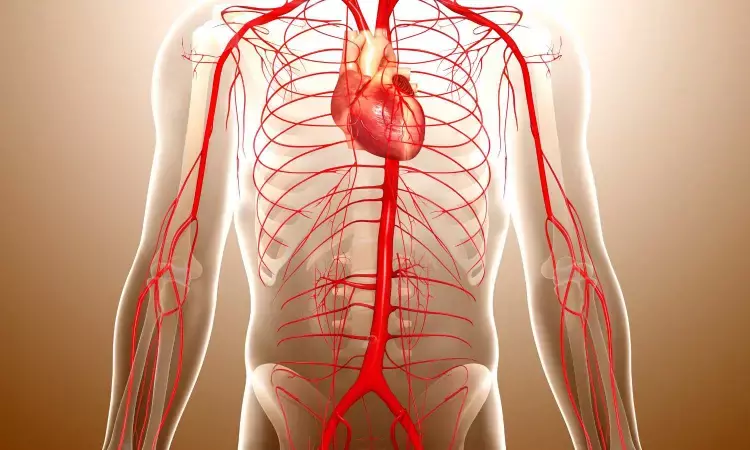- Home
- Medical news & Guidelines
- Anesthesiology
- Cardiology and CTVS
- Critical Care
- Dentistry
- Dermatology
- Diabetes and Endocrinology
- ENT
- Gastroenterology
- Medicine
- Nephrology
- Neurology
- Obstretics-Gynaecology
- Oncology
- Ophthalmology
- Orthopaedics
- Pediatrics-Neonatology
- Psychiatry
- Pulmonology
- Radiology
- Surgery
- Urology
- Laboratory Medicine
- Diet
- Nursing
- Paramedical
- Physiotherapy
- Health news
- Fact Check
- Bone Health Fact Check
- Brain Health Fact Check
- Cancer Related Fact Check
- Child Care Fact Check
- Dental and oral health fact check
- Diabetes and metabolic health fact check
- Diet and Nutrition Fact Check
- Eye and ENT Care Fact Check
- Fitness fact check
- Gut health fact check
- Heart health fact check
- Kidney health fact check
- Medical education fact check
- Men's health fact check
- Respiratory fact check
- Skin and hair care fact check
- Vaccine and Immunization fact check
- Women's health fact check
- AYUSH
- State News
- Andaman and Nicobar Islands
- Andhra Pradesh
- Arunachal Pradesh
- Assam
- Bihar
- Chandigarh
- Chattisgarh
- Dadra and Nagar Haveli
- Daman and Diu
- Delhi
- Goa
- Gujarat
- Haryana
- Himachal Pradesh
- Jammu & Kashmir
- Jharkhand
- Karnataka
- Kerala
- Ladakh
- Lakshadweep
- Madhya Pradesh
- Maharashtra
- Manipur
- Meghalaya
- Mizoram
- Nagaland
- Odisha
- Puducherry
- Punjab
- Rajasthan
- Sikkim
- Tamil Nadu
- Telangana
- Tripura
- Uttar Pradesh
- Uttrakhand
- West Bengal
- Medical Education
- Industry
High TMAO Levels Predict Abdominal Aortic Aneurysm Progression and Surgical Risk: JAMA

USA: A study published in JAMA Cardiology has found that circulating levels of trimethylamine N-oxide (TMAO), a metabolite produced by gut microbiota, may serve as an important biomarker in predicting the risk of abdominal aortic aneurysms (AAA), their growth rate, and the likelihood of surgical intervention.
- Elevated TMAO levels showed a consistent and significant association with abdominal aortic aneurysm outcomes.
- In the European cohort, higher TMAO was linked to a 2.75-fold greater risk of rapid aneurysm growth and a 2.67-fold higher likelihood of surgical recommendation.
- In the US cohort, elevated TMAO corresponded to a 2.71-fold increased risk of fast-growing aneurysms and a 2.73-fold higher chance of surgery.
- Combined analysis of both cohorts confirmed more than double the adjusted risk for both accelerated aneurysm progression and surgical need.
- Incorporating TMAO levels into cardiovascular risk models improved prediction accuracy for aneurysm growth and surgical requirement.
- The findings suggest that individuals with elevated TMAO may benefit from closer surveillance and earlier intervention to prevent rupture or dissection.
Dr Kamal Kant Kohli-MBBS, DTCD- a chest specialist with more than 30 years of practice and a flair for writing clinical articles, Dr Kamal Kant Kohli joined Medical Dialogues as a Chief Editor of Medical News. Besides writing articles, as an editor, he proofreads and verifies all the medical content published on Medical Dialogues including those coming from journals, studies,medical conferences,guidelines etc. Email: drkohli@medicaldialogues.in. Contact no. 011-43720751


